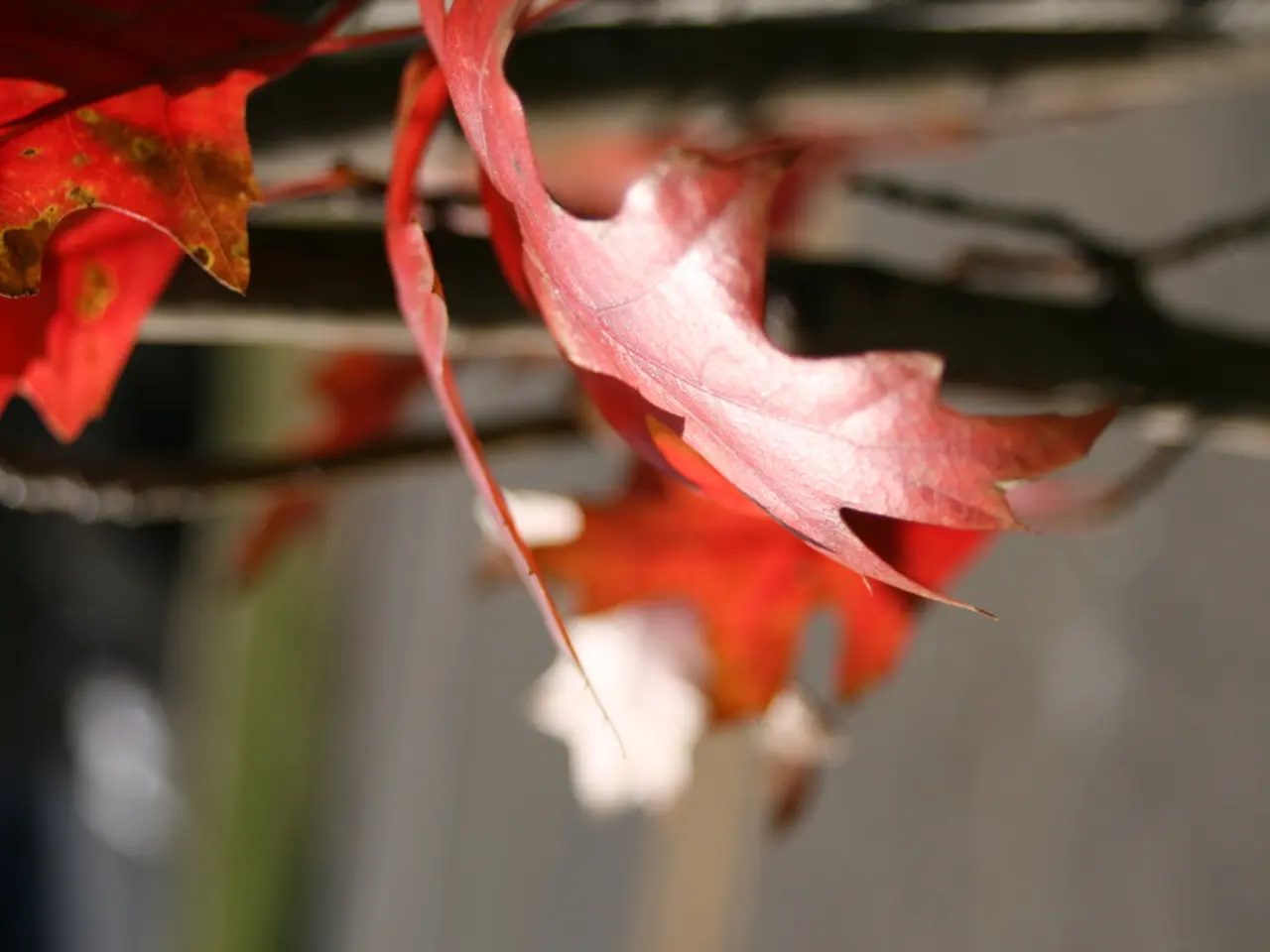Maple syrup production potentially boosts Kentucky's forest economy, according to a University of Kentucky study.
The University of Kentucky's Martin-Gatton College of Agriculture, Food and Environment has conducted a study titled "Economic impacts of maple syrup production potential in Kentucky: Input-output analysis". This research suggests that maple syrup production could significantly boost local economies in the state.
The study, published in Forest Policy and Economics, estimates that statewide maple syrup production has the capacity to circulate up to $25 million each year. This is particularly significant, given that the U.S. maple syrup market is currently valued at over $150 million annually.
Kentucky's rolling topography and the presence of red maples, which extend well below the 40th parallel, make the state an ideal candidate for maple syrup production. The economic ripple starts with a winter harvest that leaves the forest standing, where sap is drawn through small taps placed in healthy sugar and red maples, then boiled until natural sugars concentrate into syrup.
Maple syrup production in Kentucky has the potential to support jobs not only for producers but also for suppliers, haulers, packagers, and retailers. According to the study, maple syrup production could create more than 1,300 jobs and contribute roughly $1.6 million in taxes once the sector reaches its upper projected potential.
Consumer demand for natural, locally produced foods continues to rise, and the demand for pure maple syrup outpaces supply across the lower Midwest and South. Kentuckians demand more syrup than the state produces, creating an entry point for new operations.
The beauty of maple syrup production is its sustainability. It doesn't require trees to be harvested, allowing forest owners to sustainably manage their land while still earning income. A relatively small investment in food-grade lines and an evaporator can turn an idle season into income while keeping tree cover intact.
The UK Cooperative Extension Service, Kentucky Maple Syrup Association, Kentucky Division of Forestry, and the U.S. Forest Service will host offseason workshops on various aspects of maple syrup production. Researchers plan to refine cost estimates with real farm budgets, explore value-added products such as maple-infused beverages and candies, and study long-term forest health under sustained tapping.
Beyond economic gains, the benefits of Kentucky embracing maple syrup production could extend beyond economic gains, supporting environmental sustainability and community resilience. With the high demand for farm-to-table and artisanal food products, Kentucky producers could supply local and regional markets, further boosting the local economy.
However, further research is needed to confirm the exact economic impact of maple syrup production in Kentucky. The search results do not provide the name of the research team that conducted the study on the economic significance of maple syrup production in Kentucky. Nonetheless, the potential benefits are promising, and the state is well-positioned to capitalise on this opportunity.







